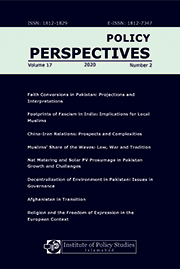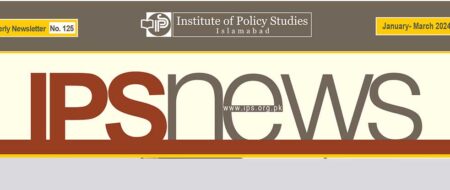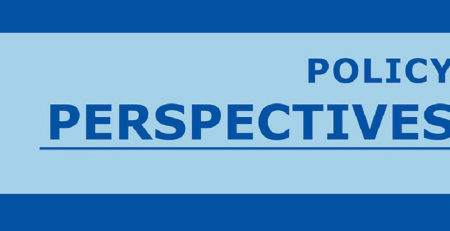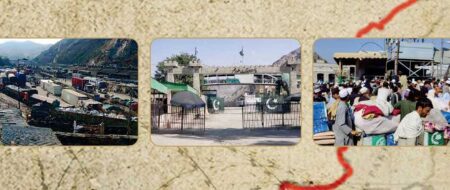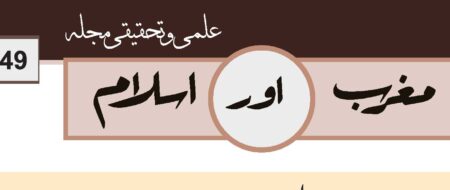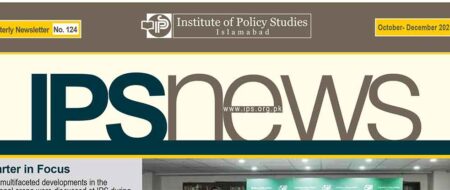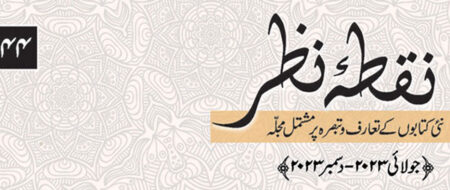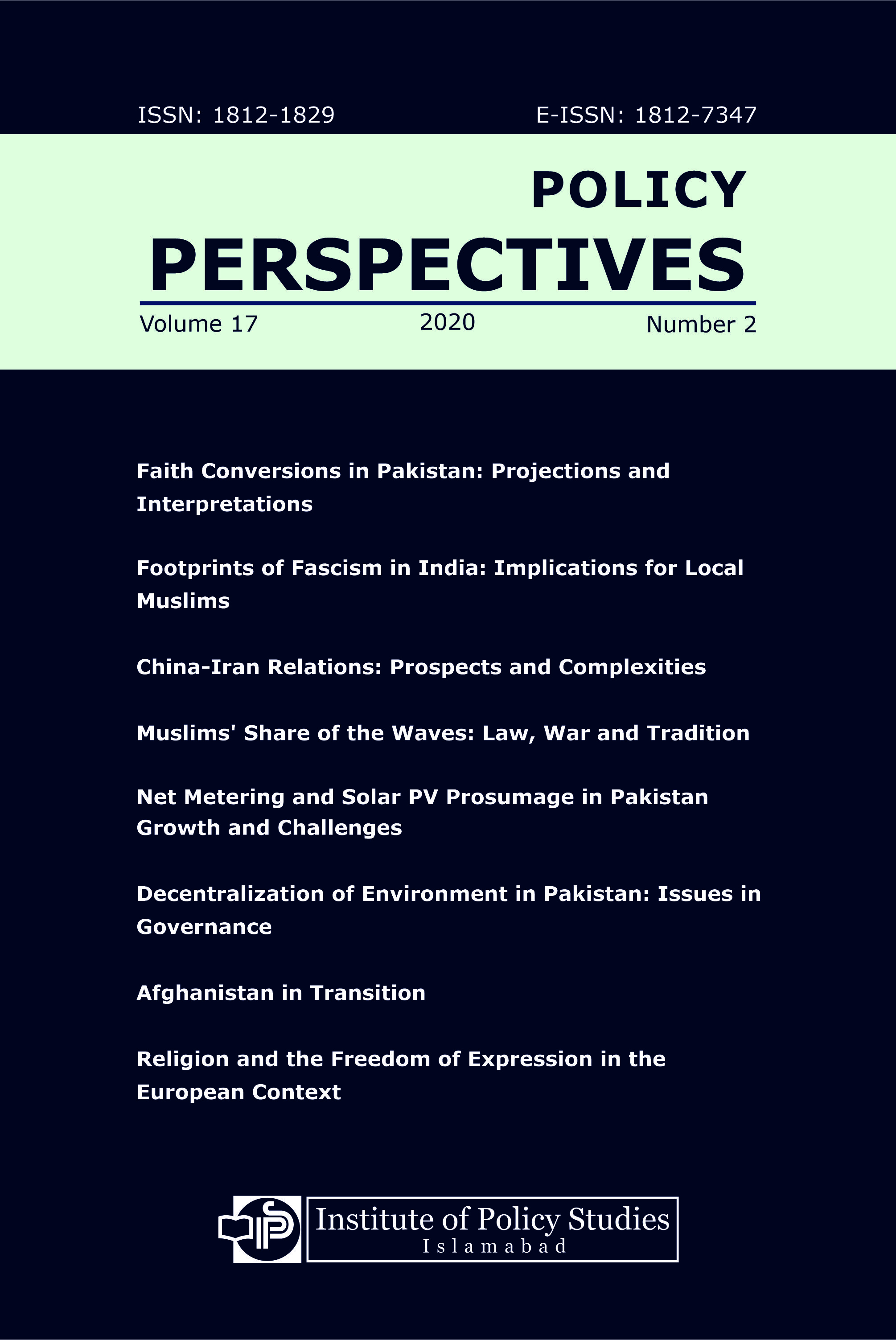Policy Perspectives (Volume 17, No. 2, 2020)
|
Editor-in-Chief: Khalid Rahman Download Contents |
The latest edition of peer-reviewed IPS’ flagship journal Policy Perspectives—disseminating the research carried out by IPS and its associates, and experts on diverse range of current and evolving topics—is out now!
The first paper on “Faith Conversions in Pakistan: Projections and Interpretations” reviews the depiction and the definition of ‘forced religious conversions’ that is discussed as a widespread phenomenon in Pakistan. It argues that the popular narrative of conversions being forced misses holistic view of the various factors which lead to religious conversion.
Author: Ghulam Hussain
https://doi.org/10.13169/polipers.17.2.0005
The next paper “Footprints of Fascism in India: Implications for Local Muslims” explores the problematic fascist tendencies in India and maintains that the current Indian government shares certain characteristics of classical fascist regimes in Italy and Germany, and the country is fast abandoning its secular and democratic values.
Author: Usama Hameed
https://doi.org/10.13169/polipers.17.2.0027
The paper on “China-Iran Relations: Prospects and Complexities” discusses the recent initiatives for cooperation between China and Iran. It evaluates various factors which contributed in evolving their bilateral relations. It looks at the historical and current trends which might impact the future of this partnership including internal dynamics and perceptions, major-power-middle power dynamics and the role of regional countries.
Author: Kulsoom Belal
https://doi.org/10.13169/polipers.17.2.0047
The paper on “Muslims’ Share of the Waves: Law, War and Tradition” deliberates on the contributions of Muslims in evolving maritime law and traditions. The paper discusses the historical events and outlines the issues and principles which underscored the utility of oceans and contributed to the conceptual debate on freedom of navigation.
Author: Tuba Azeem
https://doi.org/10.13169/polipers.17.2.0067
The paper “Net Metering and Solar PV Prosumage in Pakistan: Growth and Challenges” contends that 2015 net metering regulations in Pakistan did not fare well in encouraging consumers to contribute to power generation. Engaging with the stakeholders, the paper seeks to identify the barriers for distributed generation growth in the country. The paper offers a roadmap for overcoming the impediments to increase the solar prosumage.
Author: Naila Saleh and Sara
https://doi.org/10.13169/polipers.17.2.0083
The last paper “Decentralization of Environment in Pakistan: Issues in Governance” focuses on environmental governance post 18th constitutional amendment in Pakistan, which devolved several legislative subjects to provinces including the environment. The paper identifies the additional challenges that are instigated by weak fiscal decentralization and lack of coordination. It asks for enhanced inter-governmental and intra-provincial cooperation for optimal environment governance.
Author: Maryam Umer Khayam and Dr Iftikhar Ahmad
https://doi.org/10.13169/polipers.17.2.0101
“Afghanistan in Transition” presents the talk by former Afghan Prime Minister Gulbuddin Hekmatyar delivered at IPS in the context of the ongoing peace process in Afghanistan. In the wake of the rising exclusionism and Islamophobic environment in Europe, this issue also includes the text of a judgment of the European Court of Human Rights (ECHR) on “Religion and the Freedom of Expression in the European Context” with an introduction. Finally, this issue brings highlights of the discussions held at IPS on various subjects of contemporary significance.
Policy Perspectives is pleased to announce that it is going ‘Open Access’ very soon and go a step forward in promoting policy scholarship. The complete text of the Journal is freely available online on JSTOR. We are currently working out options for Open Access that work the best for the Journal, its contributors and the readers.



